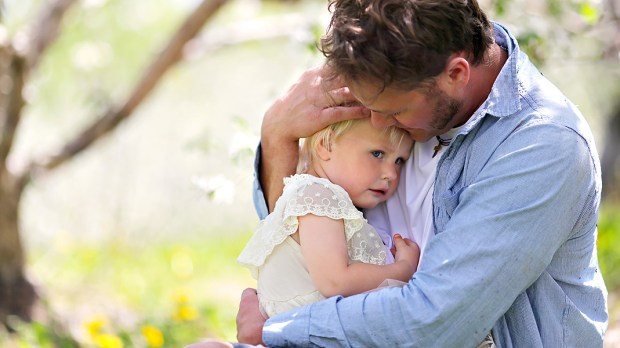For years, psychologists and other researchers focused on studying the bond between mothers and children. But now, experts are increasingly realizing just how much dads matter. Dads’ brains change with parenthood and their style of parenting affects kids — especially when kids start to throw angry temper tantrums. Kids’ angry outbursts can be a huge source of worry and exasperation. But whether it’s in the grocery store or in church, dads have a special ability to help kids manage their anger.
Dr. Gregory Popcak is the director of the Pastoral Solutions Institute and author of a new book for fathers called BeDADitudes: Eight Ways to be an Awesome Dad. As a father to three children himself, Dr. Popcak realized that the call to humility found in the Beatitudes (the blessings spoken by Jesus in the Sermon on the Mount) is counter-cultural to what today’s culture teaches men. His new book offers a new approach to fatherhood, uniquely focusing on the Beatitudes and servant leadership.

Read more:
How to defuse a child’s tantrum with one question
Little kids don’t have the thought process yet to handle their emotions, so anger can sweep over them like a tidal wave. It’s important to note that both moms and dads can help the little people in their life work through tantrums. But a dad’s presence communicates different things than a mom’s presence. “A mother’s presence helps a child calm down from stress, but a father’s presence helps kids calm down from aggression,” Dr. Popcak says.
According the Father Involvement Research Alliance review, young boys whose fathers are involved in the parenting process show less aggression and more self-direction. Meanwhile, young girls experience a higher sense of self-esteem. In the long run, a dad’s presence can also lead to children reaching higher education levels, having successful careers, and experiencing high levels of self-acceptance and psychological well-being.
We asked Dr. Popcak for his advice on how dads can help kids when they struggle with angry outbursts. Here are his three suggestions:
1. Calm yourself down first
Although it’s hard to remember in the heat of the moment, most little kids (especially if they’re under 6 years old) don’t throw tantrums because they just want to be defiant or get one over on you. “Whether mild or severe, tantrums are symptoms that a child is struggling with emotions she can’t regulate,” writes Caroline Miller, the editorial director of the Child Mind Institute. “Anger, of course, is the number one emotion that causes children to lose their heads and blow up.”
Because the most crucial part of communication is nonverbal, staying calm when your child is working through anger is incredibly important — no matter how old your child is. So if you’re frustrated with your child’s outburst, it’s okay to take a quick break and calm down first.
“There’s a place for firmness, certainly,” Dr. Popcak says. “But if you are too aggressive, you actually are feeding into a child’s aggressive reaction. So you have to take a calm, loving discipline approach instead of reacting to the situation.”
2. Try a ‘time in’ instead of a ‘time out’
When your child collapses in an angry heap, it can be easy to react by sending them to time out. But when we’re talking about infants and toddlers, the best way to respond to their anger and aggression is actually time in — where dad can bring his child into him and hold them physically close.

Read more:
The Perfect Movie for Dads and Sons
“Part of what happens when a parent holds a child is that, literally, the parent’s body teaches the child’s brain emotional regulation,” Dr. Popcak explained. “Because the child’s body picks up the rhythms of parent’s heartbeat, their respiration and their skin temperature is communicated and helps reset the child’s physiology. In a sense,” he continued, “the child’s body has to lean on his or her parent’s body to develop the skill of self-regulating.”
3. Ask 4 crucial questions
By the time kids are about 6 years old, time outs can be a constructive way to discipline. But if kids are just asked to sit in a corner for a couple of minutes to calm down, but aren’t taught why they were sent there, no lesson is learned.
“Kids learn that they can still be angry, they just have to look calm on the outside,” Dr. Popcak said. “Then they’re back in time-out 30 times in a row because they really aren’t calmer, they just look calm.” So how do you know when kids really are calm? Dr. Popcak recommends asking four questions so kids can demonstrate how calm they really are.
First ask your child if they know what they did wrong. Then, ask them for a sincere apology to the person they hurt. After that, ask them if they can tell you what they could have done differently in that situation and how they could have reacted instead of lashing out in anger.
But the final step is the most important. After your child has given you an alternate way he or she could have handled the situation, role play that with them. By doing this, you’re building neural highways in their brain so that the next time they feel anger bubbling up inside, they can remember a better way to handle it.

